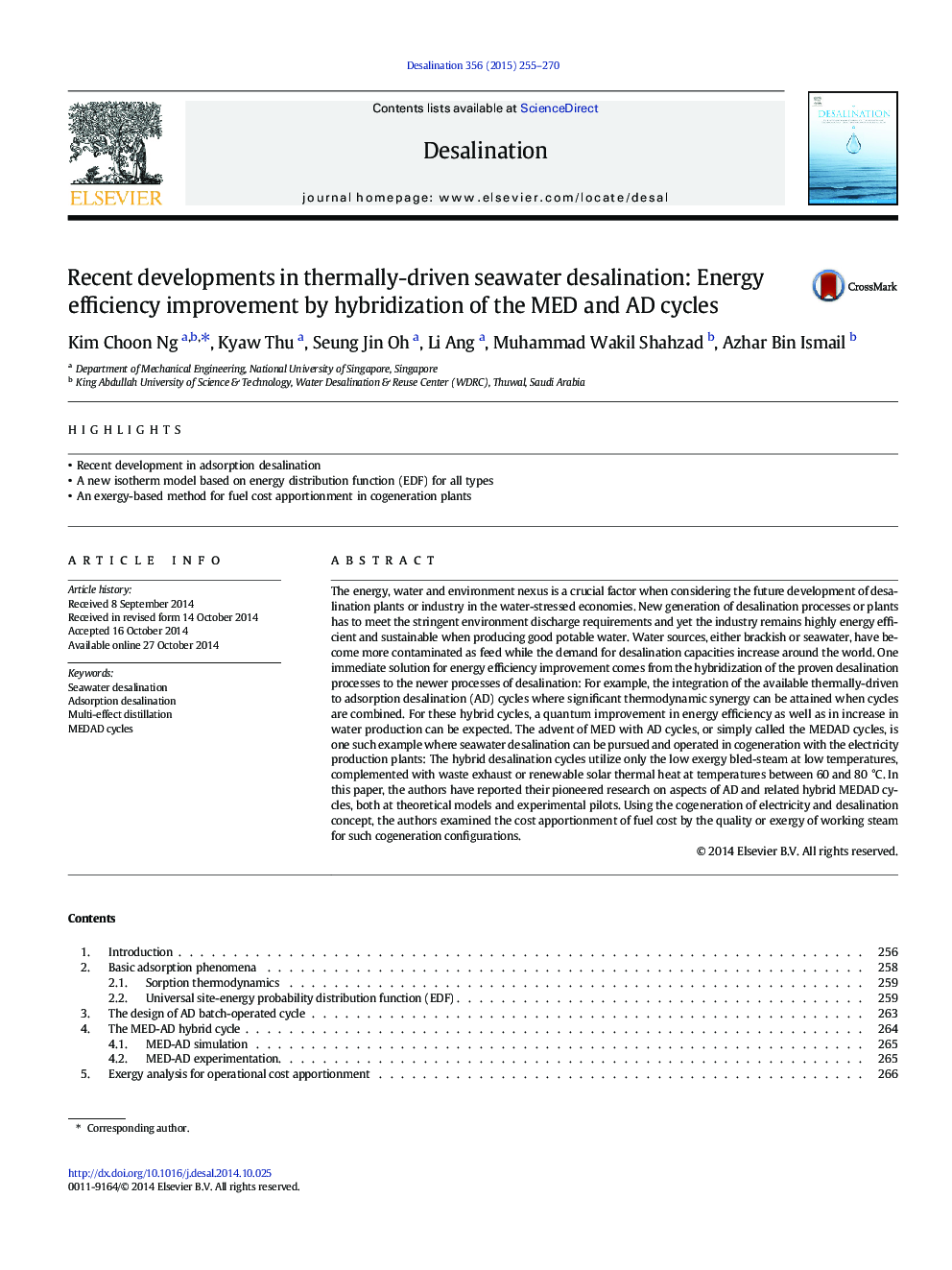| کد مقاله | کد نشریه | سال انتشار | مقاله انگلیسی | نسخه تمام متن |
|---|---|---|---|---|
| 623357 | 1455339 | 2015 | 16 صفحه PDF | دانلود رایگان |

• Recent development in adsorption desalination
• A new isotherm model based on energy distribution function (EDF) for all types
• An exergy-based method for fuel cost apportionment in cogeneration plants
The energy, water and environment nexus is a crucial factor when considering the future development of desalination plants or industry in the water-stressed economies. New generation of desalination processes or plants has to meet the stringent environment discharge requirements and yet the industry remains highly energy efficient and sustainable when producing good potable water. Water sources, either brackish or seawater, have become more contaminated as feed while the demand for desalination capacities increase around the world. One immediate solution for energy efficiency improvement comes from the hybridization of the proven desalination processes to the newer processes of desalination: For example, the integration of the available thermally-driven to adsorption desalination (AD) cycles where significant thermodynamic synergy can be attained when cycles are combined. For these hybrid cycles, a quantum improvement in energy efficiency as well as in increase in water production can be expected. The advent of MED with AD cycles, or simply called the MEDAD cycles, is one such example where seawater desalination can be pursued and operated in cogeneration with the electricity production plants: The hybrid desalination cycles utilize only the low exergy bled-steam at low temperatures, complemented with waste exhaust or renewable solar thermal heat at temperatures between 60 and 80 °C. In this paper, the authors have reported their pioneered research on aspects of AD and related hybrid MEDAD cycles, both at theoretical models and experimental pilots. Using the cogeneration of electricity and desalination concept, the authors examined the cost apportionment of fuel cost by the quality or exergy of working steam for such cogeneration configurations.
Journal: Desalination - Volume 356, 15 January 2015, Pages 255–270